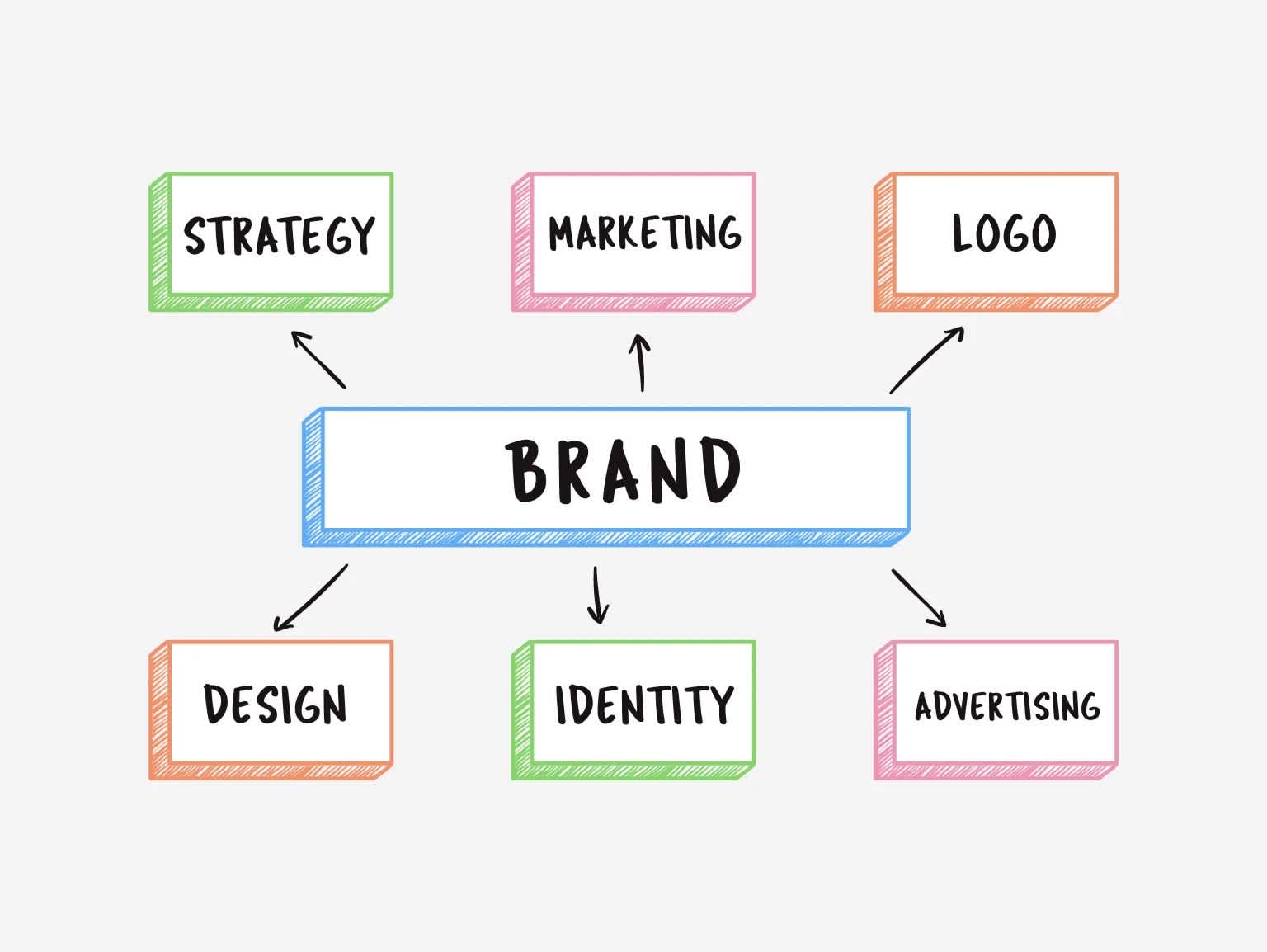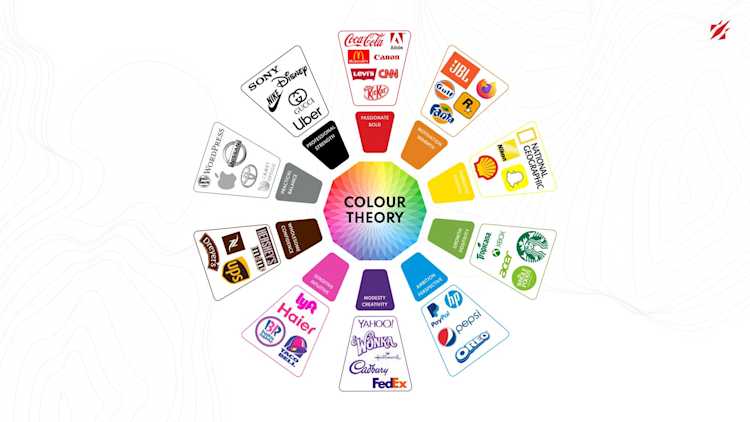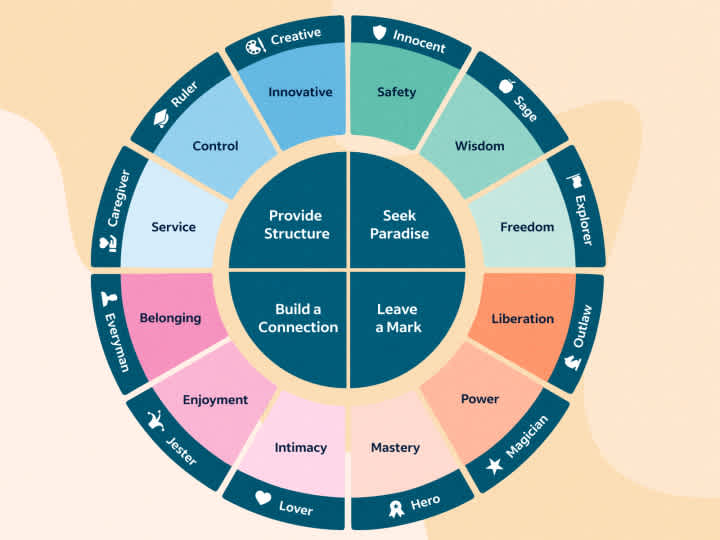Today's online marketplace is a fiercely competitive space. Startups, particularly, need a well-defined brand identity that echoes their intended message, values, and services. Establishing a strong brand identity isn't an overnight job – it entails careful strategizing, research, and plenty of creativity. This article highlights the importance of brand identity for startups and details the key steps to establish it.
The Importance of Brand Identity for Startups
When entrepreneurs start a new venture, they bring into life more than just a product or service. They hatch a brand that would eventually tell stories, evoke emotions, and build relations – crucial aspects that foster success. A robust brand identity acts as the cornerstone in building these relationships.
Standing Out from the Crowd
In an overflowing field of startups, a distinct brand identity is instrumental in marking your space and making your business stand out. It separates you from your competition by showcasing what makes you unique, aligning you closer to your audience.
Building Trust and Credibility
Brand identity also fosters trust and credibility. Consumers gravitate towards brands that embody reliability and quality. A consistent, well-thought-out brand identity signals professionalism and reflects commitment.
Inspiring Brand Loyalty
A strong brand identity can inspire brand loyalty. It transcends beyond logos and taglines, building a deep emotional connect with the audience that inspires longtime loyalty and advocacy.
Now, let's explore how you can build a compelling brand identity for your startup.
Crafting a Brand Identity: A Step-by-Step Guide
Brand identity does not emerge out of blue sky. It demands intuitive understanding, consistent efforts, and iterative refinements.
Define your Startup: Mission, Vision, and Values
Begin at the drawing board:
- Mission: What is the purpose of your business?
- Vision: What long-term goals do you wish to attain?
- Values: What fundamental beliefs guide your business?
These three elements define the roots of your brand, which will implicitly guide all your branding initiatives.
Identify your Target Audience
To effectively communicate with your customers, you must know who they are. Creating detailed audience personas can guide your brand messaging, design, and strategy. Take into consideration:
- Demographics
- Psychographics
- Consumer behaviors
- Pain points
Develop your Brand Voice and Personality
Next, nail down your brand voice and personality – the verbal and non-verbal ways your brand communicates with the audience:
- Brand Voice: Is it authoritative? Friendly? Inspiring?
- Brand Personality: Is your brand adventurous or conservative? Humorous or serious?
These considerations help shape your startup’s communications and relations with your audience.
Visualise Your Brand: Logos, Typography, and Colors
Brand identity extends much deeper than visuals, yet imagery plays a crucial role. Elements like logos, typography, and colors form the visual cockpit of your brand identity. They should align with your brand personality, mission, and target audience.
Building a Brand Style Guide
A brand style guide is a blueprint for your brand's visual elements. It includes guidelines for logo usage, color palettes, typography, iconography, image style, and more. It maintains consistency, which is key for a strong brand identity.
- Logo: Details about size, placement, variations
- Color Palette: Primary and secondary colors with precise color codes
- Typography: Font styles, sizes, and when to use them
- Imagery: Preferred styles for photos, illustrations, diagrams
Delivering Brand Consistency
Once your style guide is set, it's vital to uphold consistency across every touchpoint - be it your website, social media platforms, or email newsletters. Consistency amplifies recognition and fosters trust in your brand.
Frequently Asked Questions about Brand Identity For Startups
How can a startup develop a strong brand identity?
Developing a strong brand identity is a step-by-step process. It starts with understanding your mission, vision, and values. Next, identify your target audiences and understand their needs. Then, define your unique selling proposition (USP) and the brand promise. Once you have these elements, you can develop the visual elements of your brand identity, including the logo, typography, color palette, and visual style. Ensure your brand identity is consistent across all platforms and touchpoints to create a united and recognizable image.
What are the key components of brand identity for startups?
The key components of a startup's brand identity include the name, logo, tagline, color palette, typography, brand voice and tone, and overall visual aesthetic. The brand voice and tone are especially important as these aspects shape how you communicate and engage with your audience. All these components should work together harmoniously to create a distinctive and memorable brand identity that communicates your brand's personality and values.
What role does brand identity play in a startup’s success?
A strong brand identity can significantly influence a startup's success. It helps create a favorable perception in the minds of customers, investors, and potential partners. It differentiates your startup from competitors, enhances marketing efforts, and fosters customer loyalty. Consistent and strong brand identity can also attract talent to your team, as individuals are likely to be attracted to a recognizable and respected brand.
How can startups ensure consistency in their brand identity?
Consistency in brand identity is achieved by using the same visual styling (fonts, colors, logos), voice, and tone across all customer touchpoints. This includes your website, social media platforms, marketing materials, product packaging, and customer service. Startups can ensure consistency by creating a brand guideline, which documents the rules on how to use the brand elements.
What is the difference between brand identity and brand image for startups?
While they might sound similar, brand identity and brand image are two distinct concepts. Brand identity refers to how the startup wants to be perceived by others – it's a controlled message crafted by the startup itself. On the other hand, brand image refers to how the startup is actually perceived by others, including customers and the general public. While startups can shape their brand identity, the brand image is shaped by people's experiences with the brand.
Can a startup’s brand identity evolve over time?
Yes, a startup's brand identity can and often does evolve over time. As the startup grows, learns more about its audience, and navigates the business landscape, tweaks and changes may be necessary to ensure the brand identity remains relevant and appealing. However, it's essential to manage this evolution carefully to maintain consistency and avoid confusing your audience.
How can startups measure the effectiveness of their brand identity?
Startups can measure the effectiveness of their brand identity through various methods. These include customer surveys and feedback, social media monitoring, and looking at key performance indicators (KPIs) like brand awareness, brand recall, and customer satisfaction. Regular monitoring will provide insights into how effectively your brand identity resonates with your audience and where improvements may be needed.
How costly is it for startups to develop a brand identity?
The cost of developing a brand identity for startups can vary widely, depending on various factors such as the complexity of the design elements, the need for market research, and whether you hire professionals or do it yourself. However, investing in a strong brand identity should certainly be seen as a long-term investment, as it has potential to yield substantial returns in terms of customer loyalty and brand recognition.
Pros of Brand Identity for Startups
Clear Distinction
A strong brand identity allows a startup to be easily distinguished from the competitive crowd. Besides offering innovative products and services, unique branding makes you stand out and helps your startup to be recognized immediately. It differentiates your brand from others, granting you a competitive advantage.
Builds customer recognition
Recognition plays a significant role in a consumer's purchase decision. When customers can quickly recognize your branding components, such as your logo or color scheme, they're more likely to choose your product over ones they don't recognize, essentially driving your sales.
Consistent messaging
With a solid brand identity, messaging becomes clear, cohesive, and consistent across all channels. This helps customers understand your brand's values and offerings better, enhancing their overall brand experience.
Trust Building
A strong and professional brand identity can help to build trust with potential customers, investors, and partners. It shows them how serious, dedicated and reliable you are about your venture. A well-established brand suggests a company is established; it provides a perception of longevity which can help you to win over your potential audience.
Conveys Stability
Developing a consistent brand identity conveys the stability and reliability of a startup. Potential customers may perceive your startup as trustworthy and reliable solely based on your brand image.
Enhances Credibility
A well-crafted brand identity not only looks good but also improves the credibility of your startup. This can be particularly beneficial for a budding startup, as it can inspire trust in your target market and compel them to engage with your brand.
Brand Loyalty
Once trust is established with the clients and a positive brand image is sustained, customers are more likely to become loyal to your brand. Customers develop a liking for what’s familiar and are faithful to a brand that's reliable and provides quality.
Encourages customer loyalty
When customers align with your brand, they’ll often stay loyal to it, even when competitors attempt to swoon them with deals and discounts. This loyalty can result in more repeat business and possibly referrals, which are invaluable for a startup.
Enables emotional connections
Strong brands often trigger emotions that create a bond with the target market. This can transform customers from single-purchase customers to long-term, loyal supporters of your brand. Emotionally connected customers are known to spend more and advocate for your brand.
Customer Acquisition
A strong brand can be a powerful tool for customer acquisition. Cognitive psychology tells us that humans prefer things they can easily recognize and remember. Therefore, if your brand identity is memorable and recognizable, it can help to attract new customers.
Allures potential customers
An appealing brand identity can help to draw in potential customers. This is especially true if your brand effectively communicates the attributes that matter most to your target audience.
Word of Mouth
If people like your brand, they will talk about it, recommend it, and share it with their friends and family. This is the most effective, yet cost-efficient way of marketing a startup business.
Cons of Brand Identity for Startups
Time and Cost Intensive
Creating a powerful brand identity doesn't happen overnight. It requires significant time, effort, and financial resources. For cash-strapped startups with tight schedules, focusing on brand building might be a challenge.
Resource allocation
It can be complicated to decide on the ideal distribution of resources when it comes to branding. This could potentially lead to underfunding other priority areas such as technology, product development, or hiring.
Lengthy process
Establishing a stable and effective brand identity also involves extensive market research, strategy alignment, and graphical work. This can be a lengthy process without guarantees of immediate returns, which may not be feasible for all startups.
Managing Expectations
A strong brand identity comes with a level of quality and customer service associated with it. If you are not able to meet these high expectations, it can harm your startup's reputation and customer relationships.
Over-Promise and Under-Deliver
With a strong brand identity often comes high customer expectations. If the actual product or service delivery falls short of what the brand promises, it can lead to disappointed customers, and subsequently, damage the brand.
Constancy in brand experience
Ups and downs are a norm for most startups. However, inconsistent brand experience can turn customers off. Meeting expectations of the same quality, service, and brand experience each time requires a lot of effort and consistency.
Rebranding Hardships
Once a brand identity is established, it's often challenging and expensive to change it. If however, a startup realizes that its current brand identity is not aligned with its target audience or its offerings, rebranding becomes a necessary, albeit complicated and risky step.
Risk of losing recognition
Rebranding can be risky as you'll be altering the aesthetic your customers have come to associate with your brand. This can lead to confusion, loss of brand recognition, and potentially even loss of customers.
Rebranding costs
Rebranding requires not just changing the visual elements of the brand, but also changing marketing strategies, digital assets, and possibly even the product line. This process can be costly and time-consuming.
Summary
So why does brand identity matter for startups? It's because it sets the tone, lays the groundwork, and guides the perception of your company. Your brand identity is the face of your startup. It's how you present yourself to the world, communicate with your audience, and distinguish yourself from the competition. Startups need a killer brand identity because it doesn’t just leave an impression on your customers, it also tells them what they can expect from you.
Creating a strong brand identity for startups requires patience, consistency, and an intimate understanding of your target market. Prioritize authenticity and let your brand's personality shine through in every touchpoint you have with your customers. Remember, your brand is more than just visuals. It encompasses everything from your voice, tone, messaging, and even customer service.
The importance of brand identity for startups cannot be underestimated. A clear, consistent and compelling brand identity can help you establish trust, increase recognition, and inspire customer loyalty. In this competitive business landscape, your brand identity could be the game-changer that sets your startup apart and propels it towards success. So, make sure to take the time to build a strong, relatable brand identity that resonates with your target audience.
About WebPerfex;
WebPerfex, hailing from the sunny city of Roseville, CA, is your go-to firm for everything digital. Our dedicated team is passionate about crafting compelling websites that not only look fantastic but also deliver beyond expectations. Living, breathing, and dreaming about the online world, our specialists stay ahead of trends to provide you with top-notch SEO, graphic design, and brand strategy services. But it's not all about work - we foster a laid-back atmosphere where creativity thrives. After all, Roseville's not just where we are; it's part of who we are. Trust WebPerfex. We're the local guys who go global.




